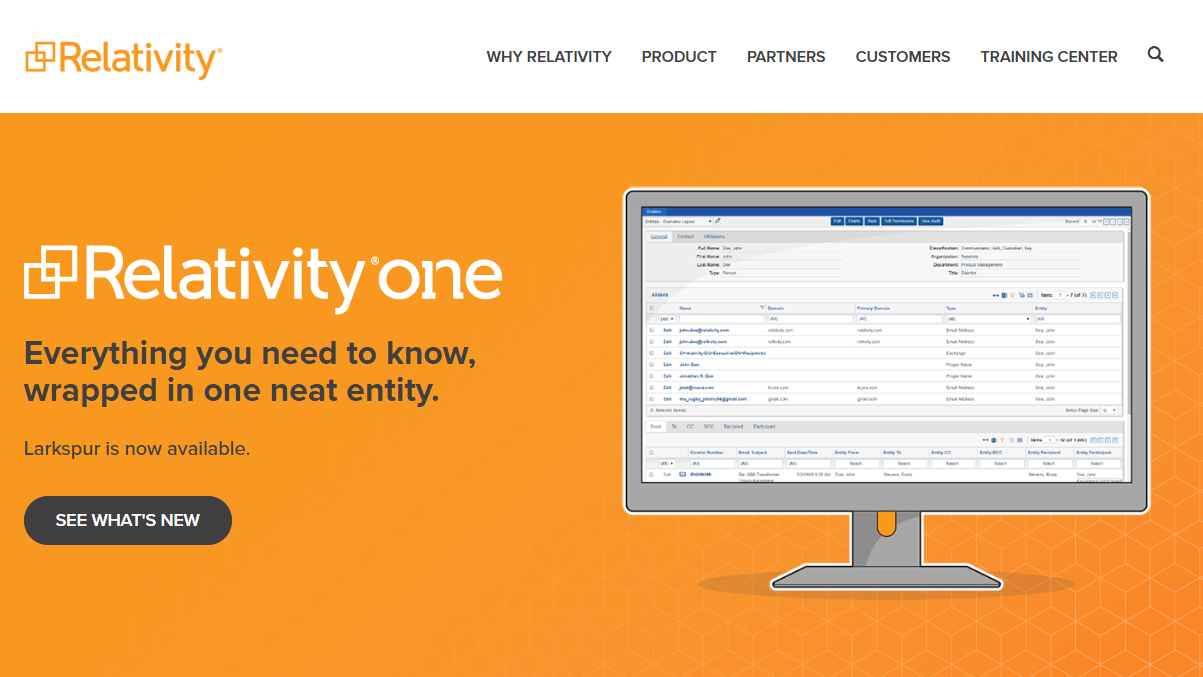E-discovery company Relativity is today announcing new pricing and licensing options for its cloud-based RelativityOne product, reducing data fees by up to 50 percent, introducing a more flexible billing model for all RelativityOne customers, and creating a special licensing option for e-discovery service providers at a lower wholesale rate.
Today’s announcement encompasses five changes to RelativityOne’s pricing and licensing. At a media briefing last week, Nick Robertson, chief operating officer at Relativity, outlined the changes.
- Reduced data fees. Relativity will lower the overall data fees for RelativityOne by up to 50 percent. Video and rich media data will also be billed at a reduced rate of 50 percent of normal data fees. In addition, Relativity will roll out flexible data storage models that provide prices that it says will be more commensurate with the value users get from that data. Data used for early case assessment, or repositories where data is reused across multiple matters, will be charged at 33 percent the cost of active data, while archived case data in cold storage will be charged at 25 percent. Relativity says these pricing changes are being made to eliminate the cost barriers for organizations that want to move to SaaS.
- New “RelativityOne User.” Until now, a customer could not purchase RelativityOne separate from Relativity. Their license gave them access to both the on-premises version and the SaaS version. Now, Relativity is introducing a new customer category of RelativityOne user, for customers who want to work exclusively in the SaaS product. These customers will have unlimited access to all RelativityOne features at a cost up to 60 percent lower than current user rates.
- Unlimited analytics. RelativityOne users now get unlimited access to analytics, including email threading and active learning, at no added cost. As new analytics tools are developed for RelativityOne, customers will be able to use them at no extra cost.
- More flexible subscriptions. Relativity is introducing a consumption-based subscription in addition to the traditional pre-commit approach. Under this subscription, users and data will be evaluated each month and pricing adjusted accordingly. Customers can sign on for this subscription as either a one- or three-year contract, with the longer contract offering more advantageous rates.
- Provider licensing. Relativity is introducing a discounted, partner-specific license on top of the professional license it currently offers. This will be available both to solution providers and to law firms that offer e-discovery services as a business. The license gives providers the ability to offer RelativityOne tenants for managed services arrangements and to join the RelativityOne partner program for co-marketing opportunities and certifications.
Relativity introduced its cloud-based RelativityOne to the market in 2017, running on the Microsoft Azure cloud-computing platform. It is now the fastest-growing product in the company’s history, it says, having grown 420 percent in the last 12 months and with over 2PB of data under management.
But, as I’ve noted before, some of its channel partners were dismayed by the news, since many of them hosted on-premises installations of Relativity.
The new licensing for partners appears to be clearly aimed at assuaging some of these concerns. “The partner community remains the backbone of Relativity,” said a statement from the company announcing the changes.
 Robert Ambrogi Blog
Robert Ambrogi Blog